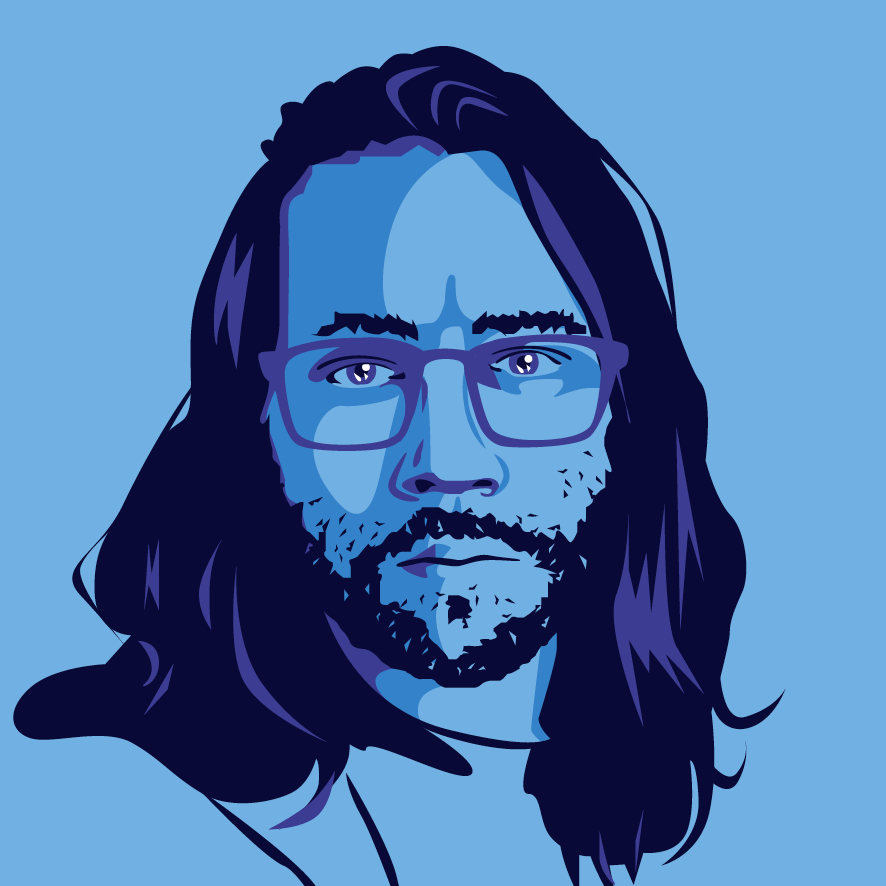Why I'm glad Dark Souls is dead
Prepare to say goodbye.
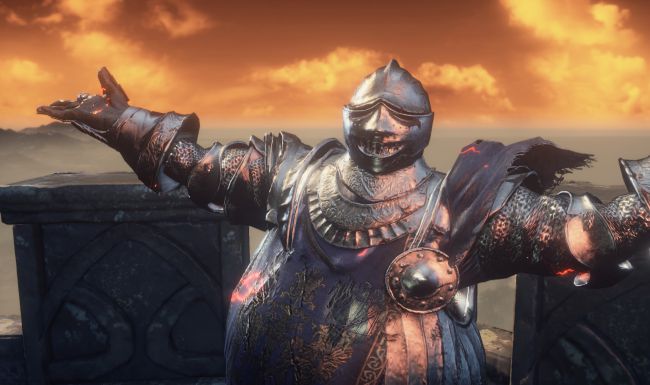
Dear god I hope it’s true. I hope every news story about every questionably translated interview is a golden signal light, because Dark Souls needs to die.
I love the series. I can’t shut up about it. Dark Souls fundamentally changed what I like about games, shifting from a focus on closely directed storytelling and action sequences to subtle, curious design. Difficult games were a big no-no for me, until Dark Souls taught me how to appreciate an enemy whose sole purpose is to tackle you from behind and knock you into the abyss, and how to use that death to ‘read’ future levels and avoid the traps altogether. It’s a series that makes you feel small and vulnerable, all while teaching you how to outsmart it with every blow.
But now, with the Dark Souls trilogy wrapped up, the series might be done for good, at least in its current form. I’m glad. We’ve been eating the same medieval apocalypse meal since Demon’s Souls released in 2009. It’s time to give From Software room to make something entirely new (which they are), and give ourselves time to appreciate the other games crowding the space the Souls series is leaving behind.
From Software, with love
Expecting From Software to stretch their ideas across five games made in the same Souls mold, all within seven years, was already too much.
It’s obvious they ran out of ideas that fit the tools, technology, and design space of Dark Souls. In The Ringed City, they put an NPC behind a door at the top of a staircase patrolled by a goddamn army of Harald Knights. That’s about six of the most difficult enemies in the game, even one-on-one, all on a narrow incline where scrappy magicians harass you with lightning bolts from above. It’s their final piece of Dark Souls content, and it’s some of the worst level and encounter design of the entire series. Clearly, they either lost track of what makes for a great level or they’re just too rushed and tired to hit the same mark as the best areas, like Sen’s Fortress. But if it was my job to make a narrow passage interesting for nearly 10 years, I’d probably botch more than a few corridors out of pure tedium.
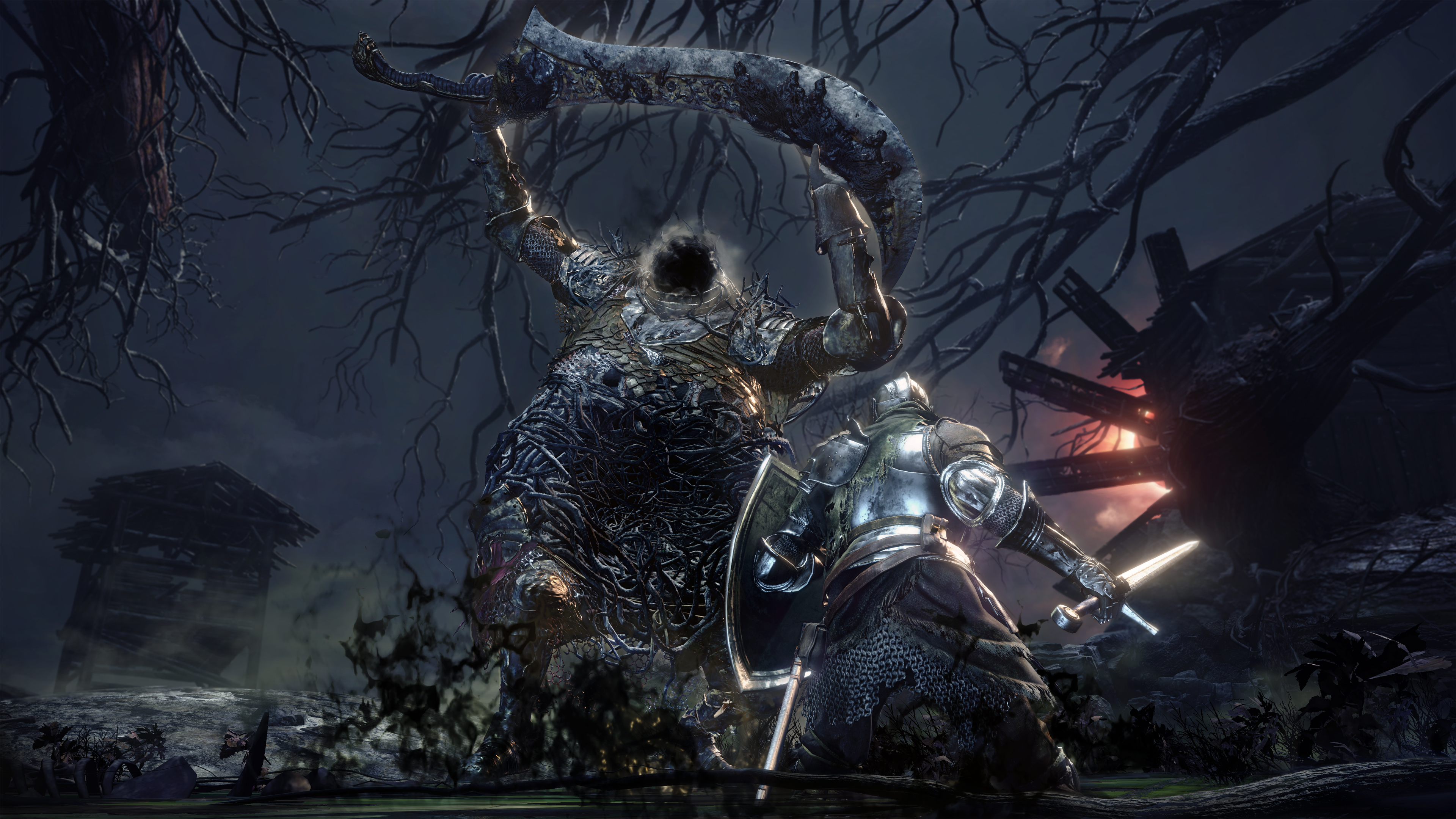
Lore might be the greatest asset and disappointment of the series, but only because the ending of Dark Souls 3 and the DLC spin off in entirely new directions. Dark Souls has some of the best environmental storytelling, with the history of kingdoms gone and quiet NPCs told through statues, item locations, and fine details on clothing. They’re some of the most dense games in this way, inspiring a community of fervent lore scholars who literally make a living through close analysis and research of Dark Souls’ indirect storytelling methods. But in The Ringed City, the final DLC and last chance to wrap up the most important threads, the story fails to follow through on almost every front. Just listen to the guys of Bonfireside Chat break it down, and nearly break down along the way.
If the hosts of the the most popular Souls podcast, one that started because of their love for the series, feel tired and sad and coming up empty with nearly every aspect of The Ringed City, then it’s a good sign From should be putting their baby to bed.
The biggest gaming news, reviews and hardware deals
Keep up to date with the most important stories and the best deals, as picked by the PC Gamer team.
Lore YouTubers will pick over the rubble for years, I’m certain, but all they’ll ever find is another plausible theory, because nearly every Dark Souls theory is plausible. I’m not sad for VaatiVidya and the like—he and the rest of the community have produced some of the most in-depth, authoritative analysis I’ve ever seen about games. But watching the final lore videos on The Ringed City roll out made me wonder what the point of even having recurring characters and locations with deep histories was.
The DLC is internally consistent, but points at and pulls from the entire series with little regard for the impact certain beats might have on previous plots. Like The Demon Prince—I thought the Old Demon King was it? You can’t really repeat the same sad catharsis of wiping out a questionably evil accident again. How? Why? Poring through message boards for conclusive theories on inconsistencies like this is just an exercise in futility, much like the central theme of the series.
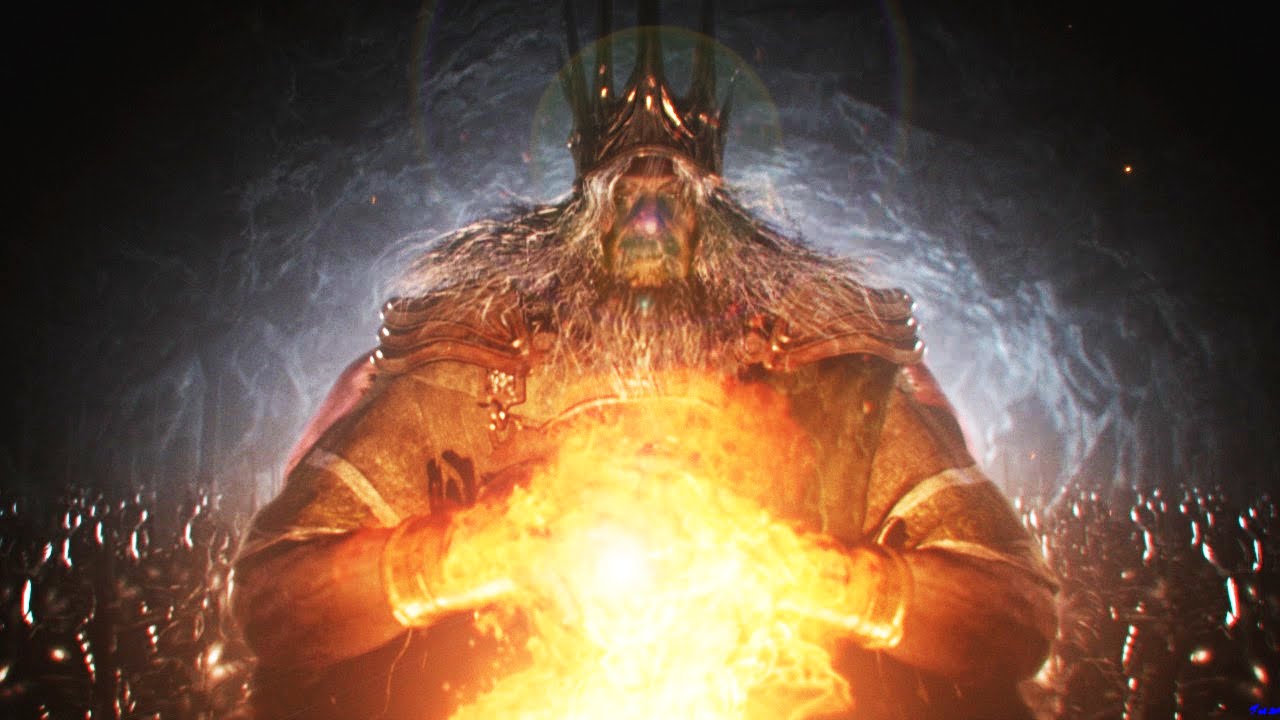
We keep lighting the fire, trying to sustain it long enough to feel completely satisfied. It’s a fitting analogy, and it might be that From intended for us to grow attached to plots and characters for the sole purpose of leaving us hanging. It makes sense: we’re greedy for resolution and like so many of the threads we want to see the bottom of, it’s often the characters’ greed that cuts them, and the cycle of fire, short. Even if it’s thematically appropriate, there are ways to tell complete stories with the same embedded messages about greed, futility, and the cyclical nature of history without making your players feel like they’re missing something.
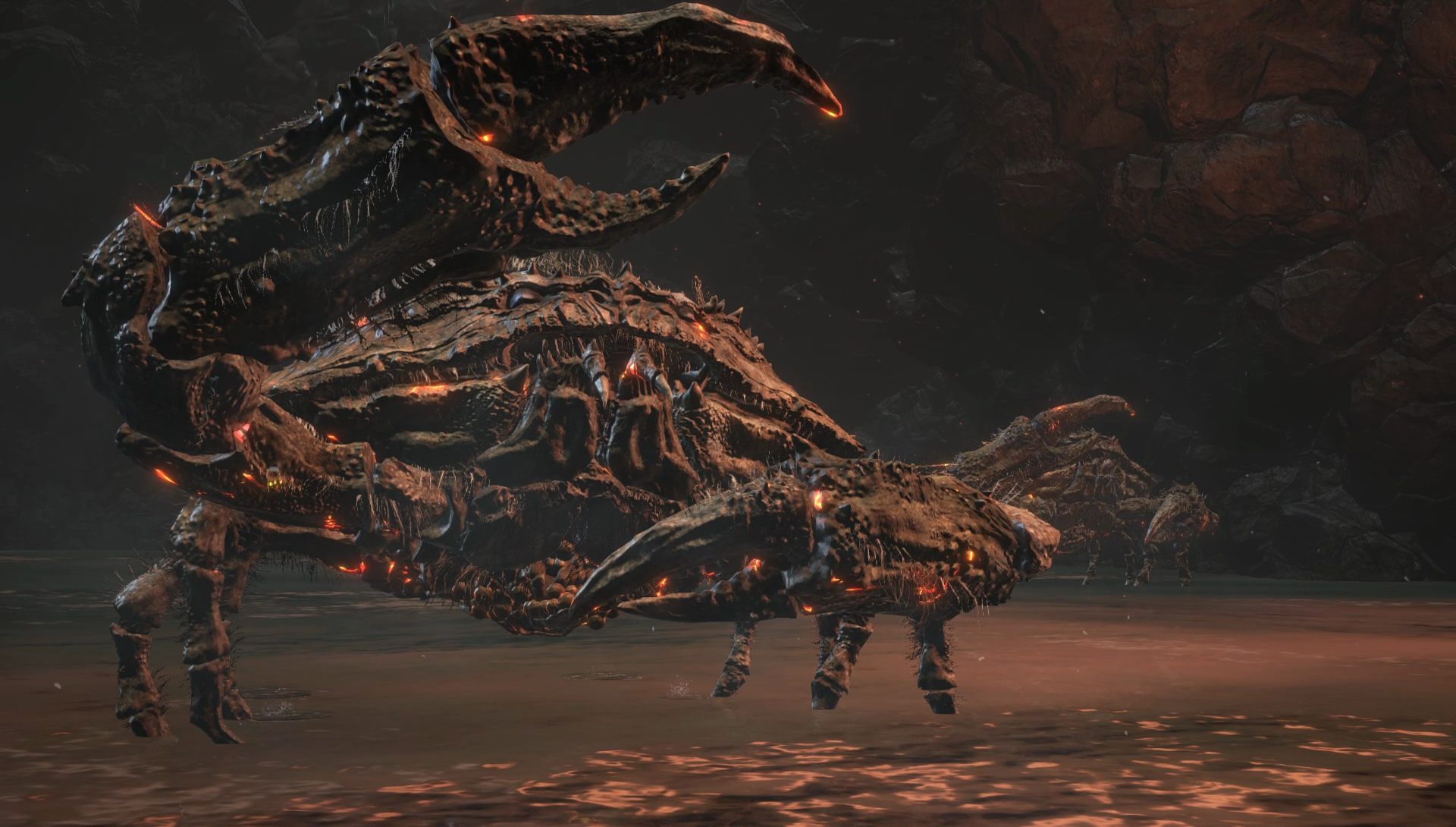
Worst of all, we never get an answer as to why there are so many damn crabs running around Dark Souls 3. I tried to crack the crab case.
Lordran goes unvisited and Gwyn conveniently has another secret kid to serve a new plot in The Ringed City. Serpents disappear altogether except in statues, and so many of the places we visit and items we get are direct repeats, or echoes of stories we’ve already heard. That’s the point in some cases, sure, but what else can be said with an apocalypse narrative besides, fuck it, everything dies someday? What else can we learn about Lordran, Gwyn, Varric, Frampt, the demons, dragons, magic, life, death, and the dark soul that we don’t already know?
From Software making further Dark Souls games would only pile on the secret codes and messages and UFOs, driving anyone with a passing interest in the story further away and those who are invested further down a cold pit with no resolution. We should’ve all learned our lesson with Stretch Armstrong—pull too hard and you find out it’s just corn syrup in there.
That doesn’t mean we’ll never play another Souls game again. Like the "Doom clones" of the 90s, "Souls-likes" are a dime a dozen these days.
Emperor’s new souls
When Dark Souls came out in 2011, the only other game like it was Demon’s Souls. Quiet, dilapidating kingdoms were perceived as boring, empty level design, and the punishing but fair combat came at a time when players were more empowered than ever. “Water cooler moments” that showcased graphical frills were prioritized over strange systems and complex level design, with explosions and set pieces stretching out from Call of Duty, to Gears of War, and into the distant horizon. It was the era of the quick time event.
Every other game cites Dark Souls as inspiration for some aspect of their design, like a holy invocation that’ll make it sell like no game has ever sold before.
Now, Dark Souls’ influence is everywhere. Not always in the best ways, but it feels like every other game cites Dark Souls as inspiration for some aspect of their design, like a holy invocation that’ll make it sell like no game has ever sold before. If only.
Still, it’s interesting to see how quickly Dark Souls’ ideas have flooded videogame design in less than a decade. A few examples: Hollow Knight, Momodora: Reverie Under the Moonlight, Hyperlight Drifter, Nioh, Necropolis, Chronos, Salt and Sanctuary, Titan Souls, Lords of the Fallen, Dark Maus, Dragon’s Dogma, Death’s Gambit, Bound by Flame, The Surge. Most of them are great (some are still on the way) and those are just the obvious comparisons.
Recently we reached critical mass with the Souls-cribbing tease of Code Vein, an action RPG from Bandai-Namco, the publishers of Dark Souls. It appears that they, too, couldn’t face letting go. And who can blame them? I want someone, anyone, who thinks they can make the formula feel new again. We’re all chasing that original high. Let’s hope that, like those sexy anime vampires, Bandai Namco don’t suck the exact same ideas dry.
But the best signs of Dark Souls’ influence are a bit more subtle, showing up in smaller ways than total adaptations. I wouldn’t doubt that as much as the team behind The Legend of Zelda: Breath of the Wild looked to systems-driven games like Dishonored or Deus Ex, that they also turned to Dark Souls to make Link feel like a vulnerable human—a hero, sure, but a man with reasonable limits. You have limited stamina, weapons degrade, and if you don’t become familiar with enemy behaviors and attack rhythms, you’re fucked. It uses the fragility of Dark Souls characters to make unexplored territory a huge, risky unknown to explore, and more enticing to venture into as a result.
We’ll be getting these piecemeal Dark Souls sequels for a decade to come—a focused combat system here, intricate level design there—and we can always return to Dark Souls with a new mod (or not) to relive the good old days.
That’s just what they are now: the old days. I love Dark Souls. It’s a series that has continually surprised and moved me, more than most games. And for a game about dungeons and dragons to pull it off in the 2010s goes to show that even the oldest frameworks for imagination can feel new again with creative, bold design choices. It’s time for From Software to make those choices again, to say goodbye to swords, boards, and undead hordes, and hello to mechs, cookies and cream, or whatever strange, grand ideas I’m certain they’re piecing together.
James is stuck in an endless loop, playing the Dark Souls games on repeat until Elden Ring and Silksong set him free. He's a truffle pig for indie horror and weird FPS games too, seeking out games that actively hurt to play. Otherwise he's wandering Austin, identifying mushrooms and doodling grackles.
